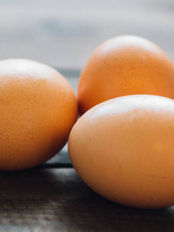SUSTAINABILITY - We supply fresh sustainable, seasonal produce.
Quota Information 2023 Area 7 (Western Approches)
Cornish Fishermen land a fantastic and diverse range of fish and shellfish species every day. Sustainability is one of the core principles that underpin the diverse mixed-fisheries and the healthy marine environment they come from. Many of the wonderful fish taken in this diverse fishery are managed as part of a mixed fishery management regime, but are not under quota restrictions. These non quota species include Squid, Cuttlefish, Octopus, John Dory, Lemon Soles, Gurnards, Turbot, Grey Mullet, Brill and Red Mullet. Progress has been made in ensuring data transparency as it is impossible to manage a fishery without quality data. Quarterly catch stats will now been published from the EU and UK to ensure ongoing, sustainable management of these species.
There are a number of species that are under quota restrictions (see table 1). These quotas are set in line with Maximum Sustainable Yield (MSY a level of fishing which is sustainable in terms of stock and will continue to give high yields over the long term for fisherman). Independent scientific advise on stock status, the commitment to meet the MSY, mixed fisheries considerations, reducing discards and social impact are all taken into account when setting Total Allowable Catch (TACs).

This chart shows Area 7, where your fish are caught
Things to think about...
The most important information to take from this is that the fishery in the South West is a very well managed one. Management in terms of restrictions in quota is the ultimate tool in conservation. As merchants, fisherman, chefs and cooks we are have one clear goal and that is to ensure our fish are harvested at a sustainable level, so they can be enjoyed now and in the future.
As a supplier with over 40 years experience in the buying and catching sector we aim to provide you with the best fish, sustainably caught and at the best possible price.
If you would like additional information about the best buys or seasonal trends please do not hesitate to contact us via email or phone. Why not join our mailing list to receive updates, specials and daily landings.

This table shows a summary of % changes in Total Allowable Catch (TAC) levels across key species
To summarise results from this year:
Great news for Monk, Megrims and Hake, all have increases in quota levels reflecting healthy and improving stocks. Rollover advise for Cod. Monk the spawning stock biomass is high and the proportion of the stock being caught is low. Quotas increased to allow fisherman to land more.
Positive scientific advice for Sea Bass has allowed for a slight increase in the catch limits for trawl, seine, gill net and hook and line fisheries. Clear signs of stock improvement. The fisheries management plan that has proved so successful will continue in 2023 with a closure of the fishery again for the spawning period (February and March).
Positive news for Skates and Rays, TACs increasing on last year which is a clear reflection of stock stability and sustainable fishing patterns.
Negative news for Pollack. The scientists have proposed a reduction in the TAC. That said Pollack is a data limited species and decisions are made on a ‘use it or lose it’ basis. The allowance for 2022 was not used, therefore a reduction in TAC has been imposed.
Negative news for Dover Soles, Plaice DE and FG. There are clearly challenges for the year ahead within the mixed fishery with cuts across these species. Changes in scientific assessment and poor recruitment has led to these cuts.
Negative news for Haddock. At the current level of fishing effort this stock is susceptible to decline, therefore the stock needs protecting. This has been done by lowering the quota to encourage fisherman to avoid Haddock. Most Haddock is caught by trawlers and recent legislation has been introduced to add square mesh panels to nets which enable small Haddock to escape, grow and breed.
Most TAC changes (positive or negative) have followed the Science. It would be useful to add anecdotal insight on a local level. The CFPO (Cornish Fish Producers Organisation) has welcomed DEFRA on the quayside in Newlyn to discuss with its members face to face. It is worth noting that this is only the third time the UK has participated in negotiations as an independent coastal state. Post Brexit there was hope that fisheries could be managed on the ground locally giving more control over quantities caught, method of catch and mesh size. ICES scientific advise is the key driver for TAC setting, but it does not consider changing climate, warmer waters and improved selectivity measures that the CFPO has been at the leading edge of.





